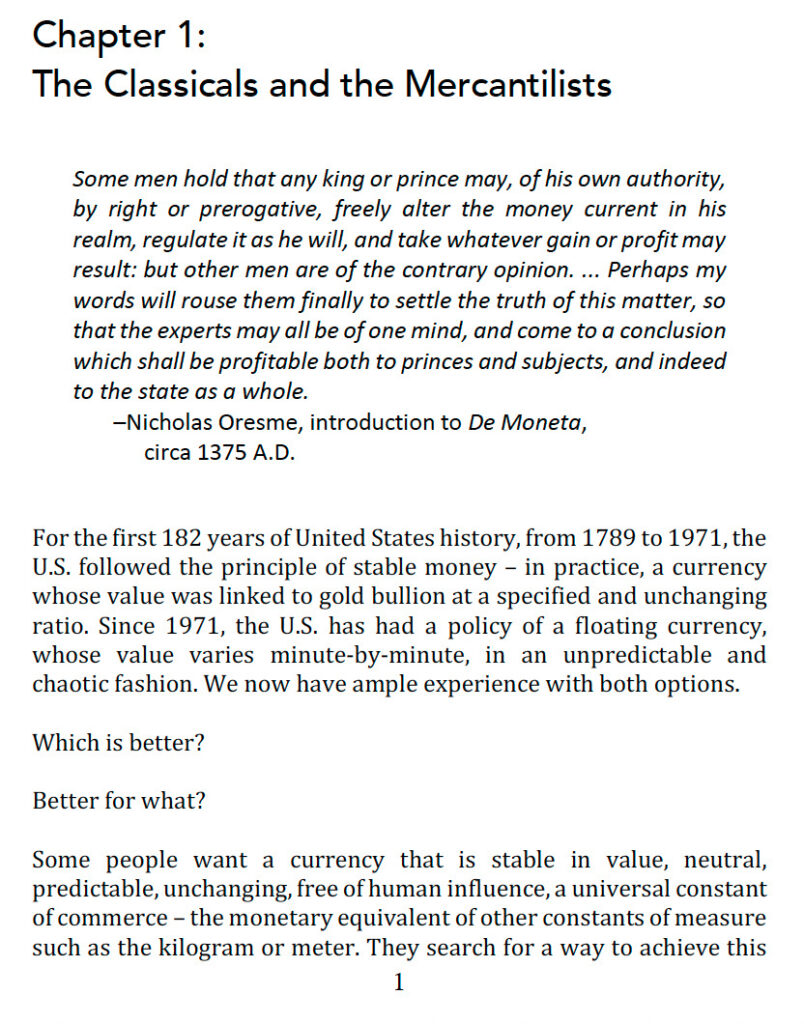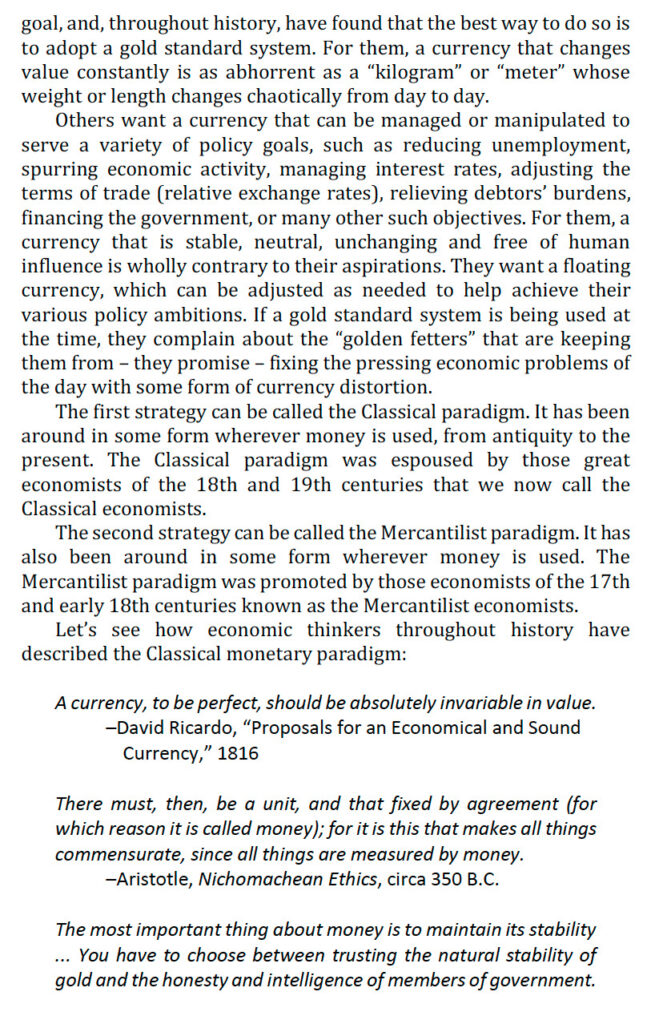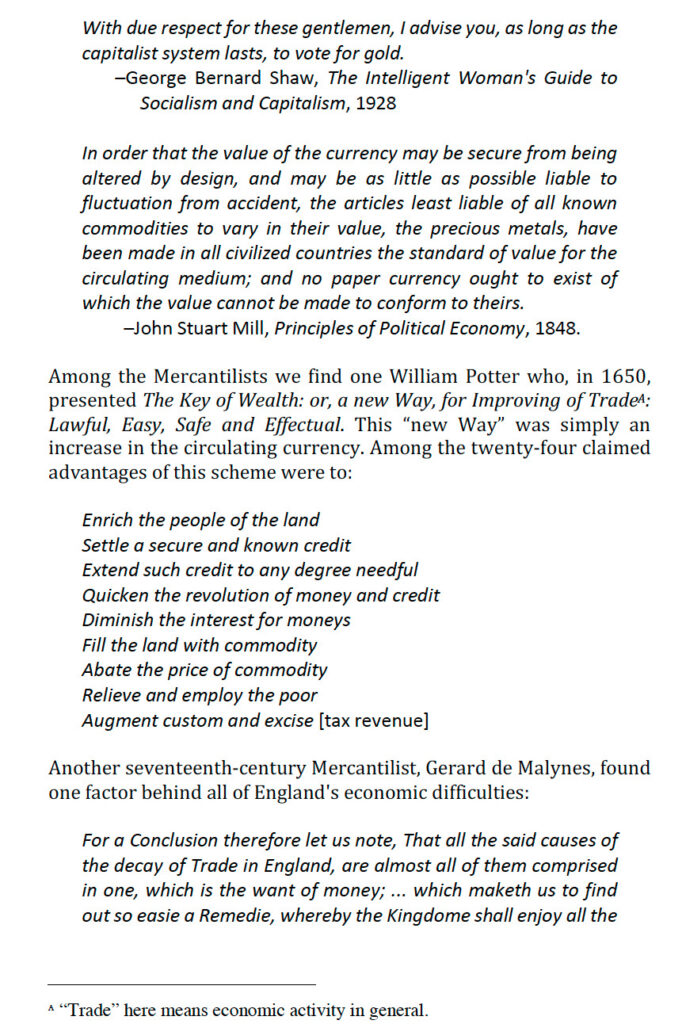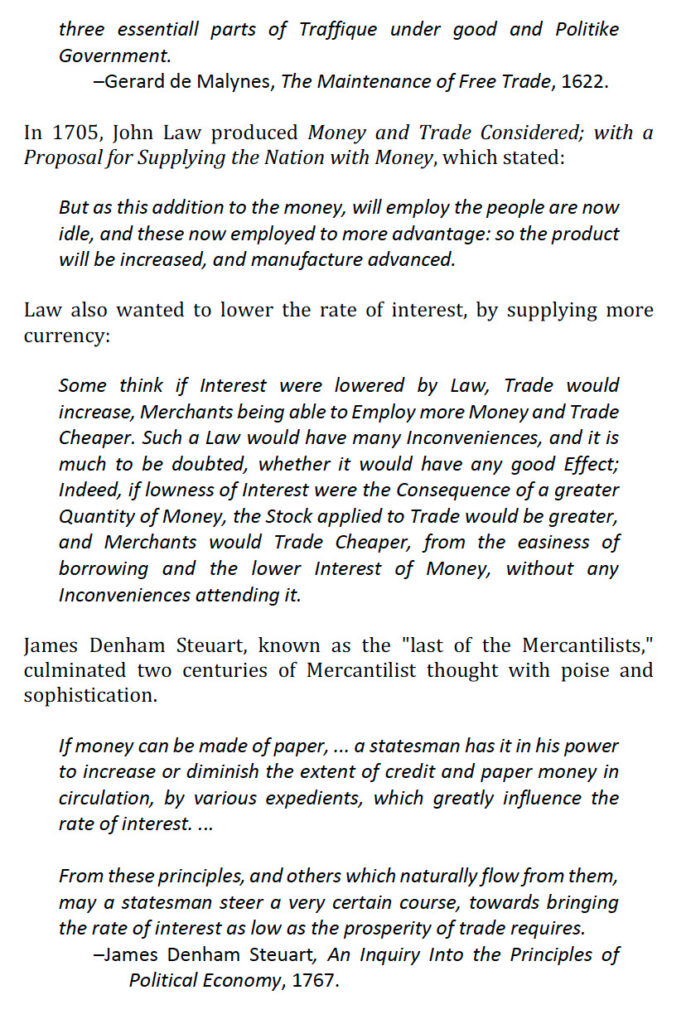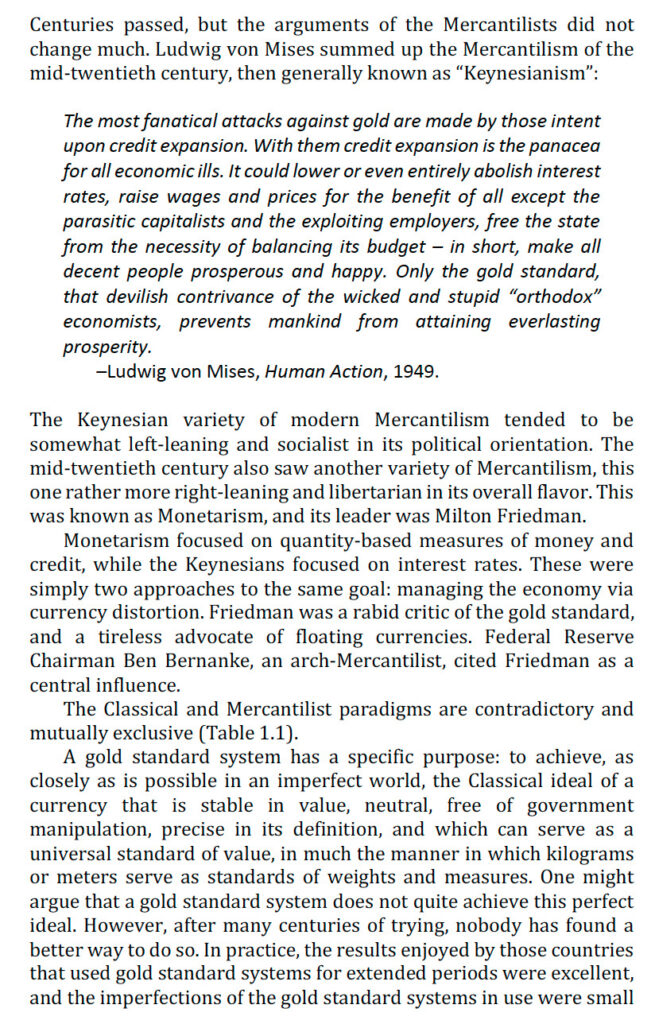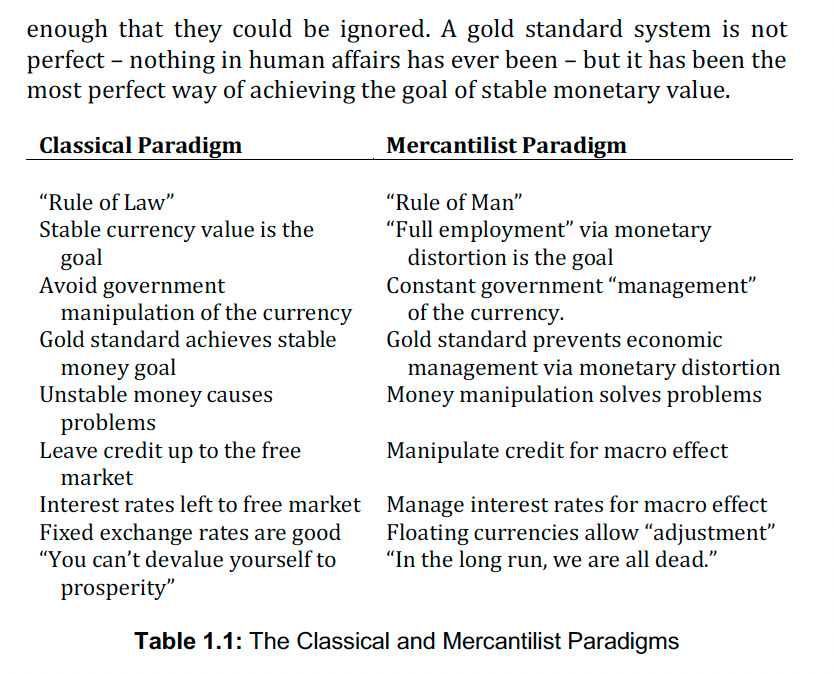I wanted to say something useful about the problems of Monetarism. We get a lot of Monetarism today particularly among the more conservative- or right-leaning groups. The Monetarist economists usually promote vaguely free-enterprise, small government principles, although typically not so much in actual practice. Where are the Flat Tax (or FairTax) fans among the Monetarists? They would probably agree with the idea, in principle, but their involvement ends with a nod of approval. As we will see, this is the natural and expected consequence of their adherence to certain fallacious notions, where Money is the beginning and end of all things. This is an extension of the “Prices, Interest, Money Box” that Classical economists got into toward the end of the 19th century, in the process effectively scrubbing all economic understanding of everything that lay outside of this box. The Keynesians were not much better, adding “government spending” to “Prices, Interest and Money,” among their toolkit of macroeconomic manipulation. The “Austrians” today have the same difficulties.
I discussed the “Price, Interest, Money Box” in Gold: The Final Standard.
July 10, 2016: The Tyranny of Prices, Interest, and Money
November 27, 2016: The Tyranny of Prices, Interest, and Money #2: The Old Historicism
Notable examples of this embrace of Monetarism among conservatives is the Cato Institute, always a hardcore Monetarist hangout, and the Independent Institute. I would say that even the American Institute of Economic Research, which has a long history of gold-standard advocacy, has been crippled by Monetarists in their ranks. in recent years. Where today can you find a single organization in favor of the gold standard, or even, if you do not like gold so much, the principle of Stable Value? Besides some very small operations like the Sound Money Defense League, this is hard to find. But, actually, in the real world, most governments have some variant of Stable Money. They link their currencies (in principle) to the USD, EUR or some other thing.
Over time, I have come to the conclusion that Monetarism is not just a persistent form of honest error, but likely an actual program of intentional subversion and confusion, by those who wish to prevent a return to gold standard principles worldwide. Some people think that those elements promoting this subversion and also those who effectively control the world’s central banks. So, you have to admit, it makes sense.
“Give me control of a nation’s currency, and I care not who makes the laws,” is a quote variously attributed to Mayer Amschel Rothschild (1744-1812), or also his son, Nathan Rothschild (1777-1836). It was supposedly uttered by Mayer Rothschild in 1790, in relation to the founding of the First Bank of the United States, the US’s first central bank, which was more than 50% foreign-owned.
The First Bank’s 20-year charter was not renewed by Congress in 1811. Then, out of nowhere, came the War of 1812 with the British. This war’s end coincided with the establishment of the Second Bank of the United States in 1816. Hmmm.
Those who are knowingly employed as subversives, or knowing promoters of false doctrines, will of course never change their mind. However, there is a much larger class of people confused by these notions, including, I think, a class of “useful idiots,” who go on promoting Monetarist notions with actual sincerity. These are professors, and other supposed economic experts.
I have been postponing a discussion on this topic, because to do it right really would involve quite a lot of work. But, we might as well begin somewhere, and maybe, over time, we will build up a lot of related material. I thought that a proper discussion would begin with the idea of the Value of a Currency being the primary interest, as opposed to the Quantity of a Currency, and how this supposedly affects Prices. As it turns out, I already have a pretty good discussion of that, in Gold: The Monetary Polaris. So, let’s begin there.
